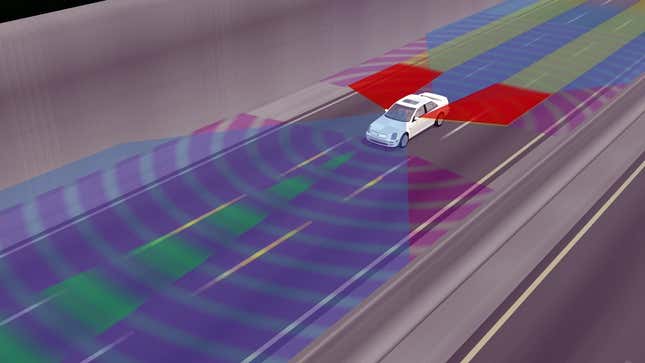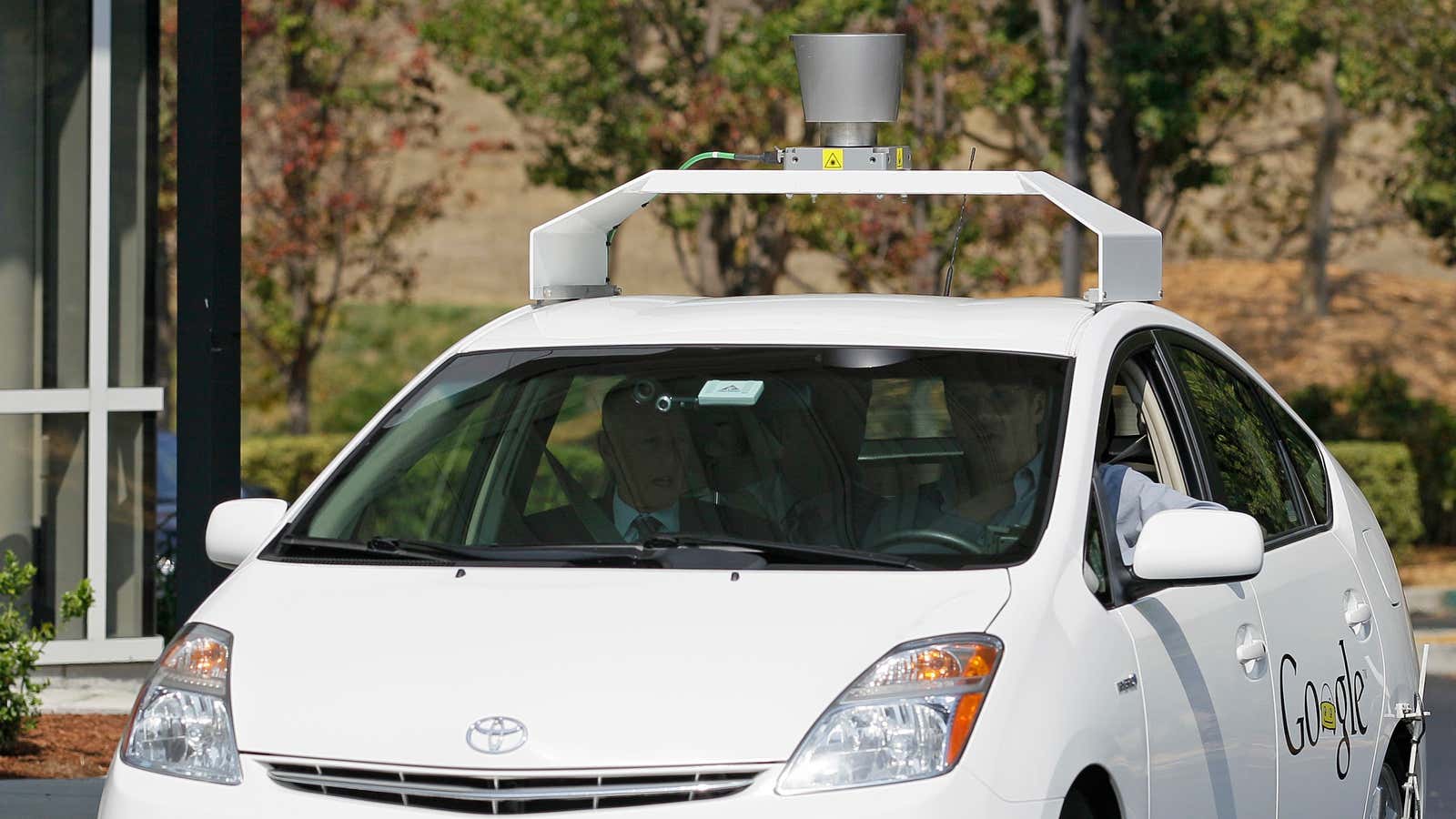Once again, Google is apparently working on its own version of hardware at the same time that it’s partnering with mainstream manufacturers of the same kind of device. But this time, it’s a car.
A report by Amir Efrati includes details of Google’s exploration of what it would take to build its own car, including conversations with auto-components companies Continental AG and Magna International. Additional details come from the German newspaper Frankfurter Allgemeine Zeitung, which reports that Google wants to have the first self-driving cars available to private citizens in California by 2017.
Owing to the enormous complexity and difficulty of manufacturing and selling a car, Google would still prefer to partner with a major auto manufacturer, say Efrati’s sources. But just as Google has done with phones and laptops, it appears the company is willing to build its own hardware or dictate to partners the specifications of a device, in order to create what Google’s leaders view as a best-in-class version, spurring competition and innovation among Google’s partners and an industry as a whole.
Robot taxis

One possibility for Google would be the creation of a car service, minus the drivers. Such a service would eliminate the difficulty of selling cars to private citizens. And while regulations governing the legality of self-driving cars are remain a work in progress, ride-sharing services like Uber are paving the (regulatory) way for unconventional taxi services to disrupt traditional car services. Notably, Google’s venture capital arm just made its largest-ever investment, in Uber—a $258 million bet that the future of driving is renting access rather than ownership.
